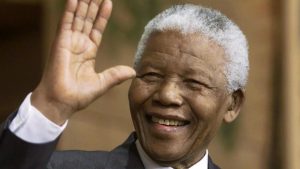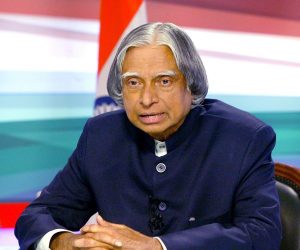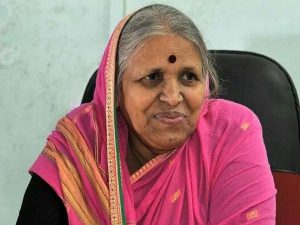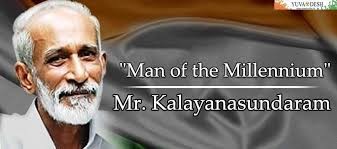What is the definition of self-actualization?
Human needs are a never ending series; no sooner one need is fulfilled, the other need arises and this is how man is always busy in struggling to fulfill one need after the other. Maslow felt that people keep on fulfilling their never-ending needs from birth till death which are distinct from rewards and unconscious desires. In his theory of needs, self-actualization is placed at the peak of the pyramid. Self-actualization includes realizing personal potential, self-fulfillment, seeking personal growth and peak experiences. Self-actualization leads to enlightenment which means letting go of self, and these people are desirous to promote welfare of others.
So how are self-actualized people different than others? They are reality oriented and they do not get threatened by the unknown. They have a great ability to see things as they are, they see the truth in a given circumstance. These people accept themselves, other people, circumstances and the natural world for what they are. They are able to learn from anyone and are friendly with anyone, with no regard to stereotypes such as education, class, gender, age etc. In fact they don’t believe in stereotypes. They are emotionally intelligent, without any guilt or embarrassment. They look peaceful because they let go of self, and they don’t really worry. I suppose, when a person is sure about his strengths he doesn’t need direction from others. They take the responsibility for themselves, and own their behavior. They take up causes in society and give their selves totally for the cause. In fact, self-actualized people start living for the cause without the need of enhancing their identity.
Nelson Mandela, the South African activist and former president helped bring an end to apartheid and was a global advocate for human rights. A member of the African National Congress party beginning in the 1940s, he was a leader of both peaceful protests and armed resistance against the white minority’s oppressive regime in a racially divided South-Africa. His actions landed him in prison for nearly three decades and made him the face of the anti-apartheid movement both within his country and internationally. As President Nelson Mandela donated half of his salary to poor children and when he received the Nobel Peace Prize he gave part of the prize money to help street children. Nelson Mandela not only wanted all children to feel loved, he tried his best to give them a better future. He wanted children to be given best opportunities to develop their talents.
Self-actualized people are composed and retain dignity amid confusion and personal misfortune, all the while remaining objective. They have a great deal of spontaneity and have no unnecessary inhibitions. The self-actualized person can be alone but he does not feel lonely. They are honest and seek justice for all. They are autonomous and independent. Thoughts and impulses are free by convention. Their ethics are self-directed and they determine their own inner moral standards.
Dr APJ Abdul Kalam – the Ex- President of India was a quintessence of a new India. Born in a humble Muslim family, he came from a small town, Rameshwaram in Tamil Nadu, through sheer determination and hard work, went on to become a missile scientist, then the Chief Scientific Adviser to the then Prime Minister. In 1998, he along with cardiologist Dr Soma Raju developed a low-cost coronary stent. It was later named ‘Kalam-Raju Stent’ in their honor. Kalam was nominated for Youth Icon of the Year award by MTV in 2003 and 2006. His age was 73 and 76 respectively then. He motivated the youth of India because he truly believed that the nation’s future lies in their hands. When Dr. Kalam first moved to Rashtrapati Bhawan, he asked all luxurious rooms to be locked up as he didn’t want to use them. He left this world doing what he did best, educating and inspiring students at the Indian Institute of Technology, Shillong. He left behind a treasury of 2500 books, a wrist watch, 6 shirts, 4 trousers, 3 suits and a pair of shoes. He dint own any property, car, or any other assets. He lieterally travelled very light.
Self-actualized people live moment to moment and feel excited as they live their life to the full. Vibrant moments are frequent and peak experiences not unusual. Peak experiences are moments when one sees clearly what before was hidden or concealed. They seek wholeness. Self-actualizing people retain their childlike qualities and yet have a farsighted wisdom.
I see a personification of affectionate care taker in the living legend in Maharashtra, Sindhutai Sapkal who devoted her entire life for orphans. As a result she is fondly called ‘Mai'(mother). She has nurtured over 1050 orphaned children. As of today, she has a grand family of 207 son-in-laws, 36 daughter-in-laws and over 1000 grandchildren. She still continues to fight for the next meal of orphans. Many of the children whom she adopted are well-educated lawyers and doctors, and some, including her biological daughter, are running their own independent orphanages. Sindhutai Sapkal started her life journey from the streets. At the age of ten she was married to a man with the age difference of 20 years. Her husband was a 30-year-old cattle-herder, who would often beat her for no reasons. At the age 20, she was deserted by her husband and thrown out of her house along with an infant baby girl. Sindhutai many times begged on streets to feed the orphans. This great lady uses all the money she receives through charity in buying land, constructing homes and providing education for children.
Another example of a self-actualized person is librarian Kalyansundaram – a retired librarian of Kumarkurupara Arts College at Srivaikuntam in Tuticorin district. For this 73 years old philanthropist, humanity has been his guiding principle of life. Kalyansunderam holds a gold medal in library science; he also holds a master’s degree in literature and history. Throughout his 30 years long career, he conscientiously and willingly donated his salary month after month towards charity for paying fees of poor children and did odd jobs to meet his daily needs. Even after retirement, he works as a waiter in a hotel in exchange for two meals a day and a paltry salary. Even today, he continues to donate to children’s educational funds. He is hero because of his high moral character, value based living, and helping the humanity. He is living a simple life in spite of earning several monetary awards. He has donated Rs.30 crores of prized money given to him by an American Organization as “Man of the millennium” and even after he retired as a librarian, he donated his pension of Rs. 10 lakhs!
Self-actualizing people enjoy an inborn uniqueness that carries over into everything they do. Swami Vivekananda said, “You cannot believe in God until you believe in yourself.” Does this mean that Vivekananda considered nonbelievers as people lacking self-belief? The statement by Swami Vivekanand was in light of his belief that only after a person has faith in himself and his beliefs can he have faith in God. Friends, Vivekananda was a self-actualized man himself.

















































